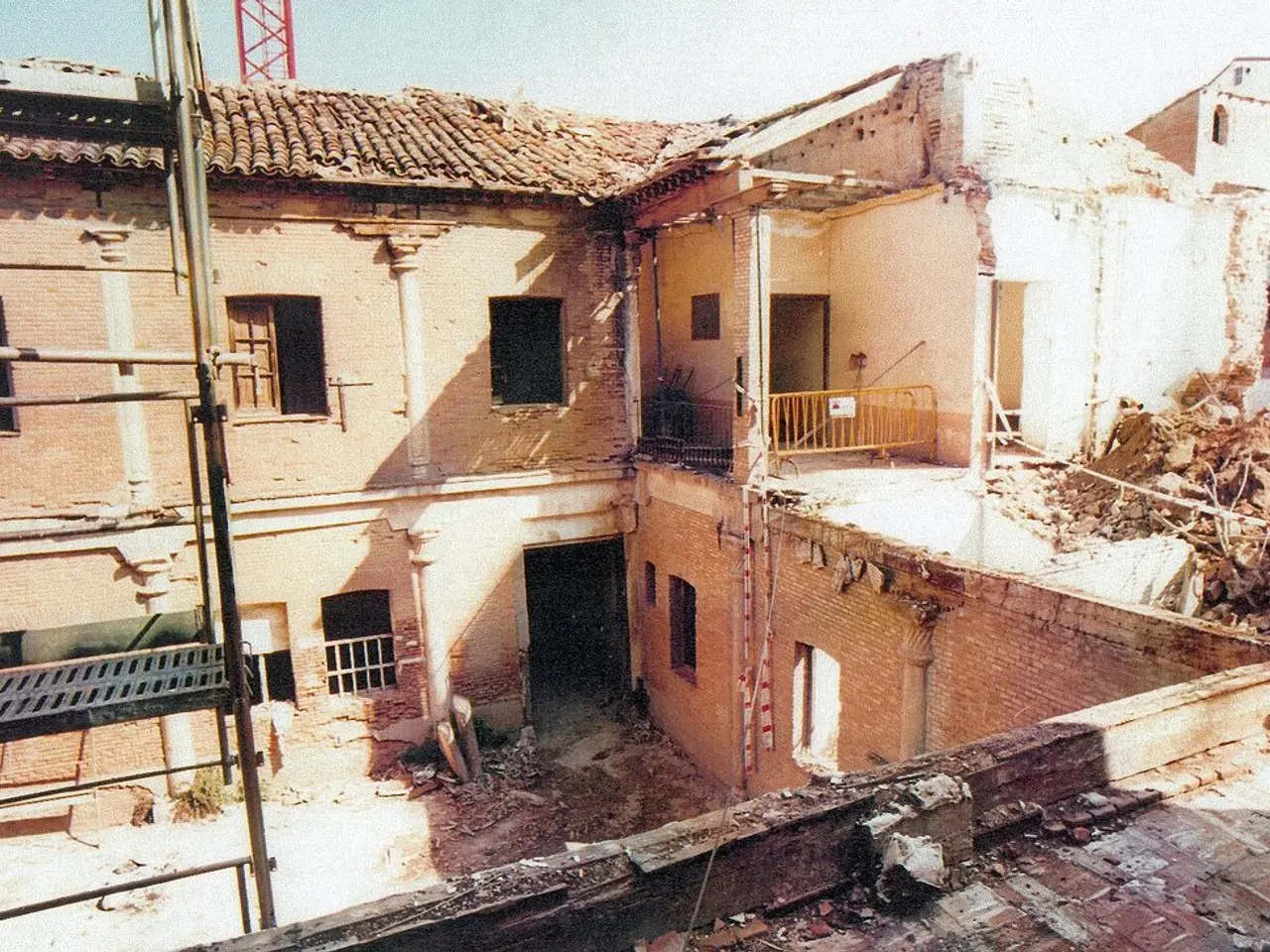TDSK's subsidiary could face financial collapse
In a significant development for the Tomsk Oblast construction industry, AO "Stroitelnoe Upravlenie TDSK" has filed for bankruptcy, signalling a period of adjustment and restructuring amidst a slowing market and economic pressures.
The bankruptcy comes as the regional construction sector grapples with reduced activity, mirroring a broader market adaptation in response to shrinking order books, tighter financing conditions, and shifting economic realities. According to industry forecasts, the Russian construction and cement markets are expected to decline by 6-12% in 2025[1].
The implications of this bankruptcy are far-reaching. Ongoing projects may face disruptions and delays, necessitating a reevaluation of business models and cost structures across the industry. Consolidation is likely, as weaker players exit or are absorbed by stronger companies adapting to the cooling market. The bankruptcy may also put pressure on suppliers and contractors connected to AO TDSK, potentially rippling through the local supply chain.
The bankruptcy filing is a proactive step to address the financial crisis in the Tomsk Oblast construction industry, which is plagued by unpaid debts and lawsuits. The lawsuits, worth one billion rubles, were filed by TDSK's subsidiary companies against state customers due to the lack of compensation for the increased cost of constructing social facilities.
The bankruptcy petition, worth 1.34 million rubles, was filed by LLC "Soyuzliftmontazh". The bankruptcy filing aims to reduce the debt burden on TDSK's construction divisions and is being viewed as a means for financial rehabilitation.
The Arbitration Court has accepted the bankruptcy petition, and the holding's press service confirmed that companies in the construction industry are adapting to market cooling and new economic realities. The bankruptcy filing is also a strategic move to freeze penalty calculations.
Despite previously signed settlement agreements to clear the debt, the bankruptcy petition was filed despite these agreements. The bankruptcy filing does not imply the complete liquidation of TDSK's construction divisions.
This bankruptcy is emblematic of the Tomsk construction industry's adaptive response to a contracting market and evolving economic conditions. The phase is likely to result in significant industry transformation, including business model recalibration, financial consolidation, and a focus on sustainability under the new economic environment.
[1] Forecast by the Russian Union of Industrialists and Entrepreneurs (RSPP) as reported by Interfax.
The bankruptcy filing by AO "Stroitelnoe Upravlenie TDSK" in the Tomsk Oblast construction industry indicates a need for adjustment and restructuring, as financial pressures and tighter financing conditions impact the industry's growth. This move may trigger consolidation amongst companies, with weaker players potentially merging with stronger ones to adapt to the cooling market.
The bankruptcy petition, filed by LLC "Soyuzliftmontazh", aims to reduce the debt burden on TDSK's construction divisions and is seen as a strategic step towards financial rehabilitation in the context of the industry's struggle with unpaid debts and lawsuits.




